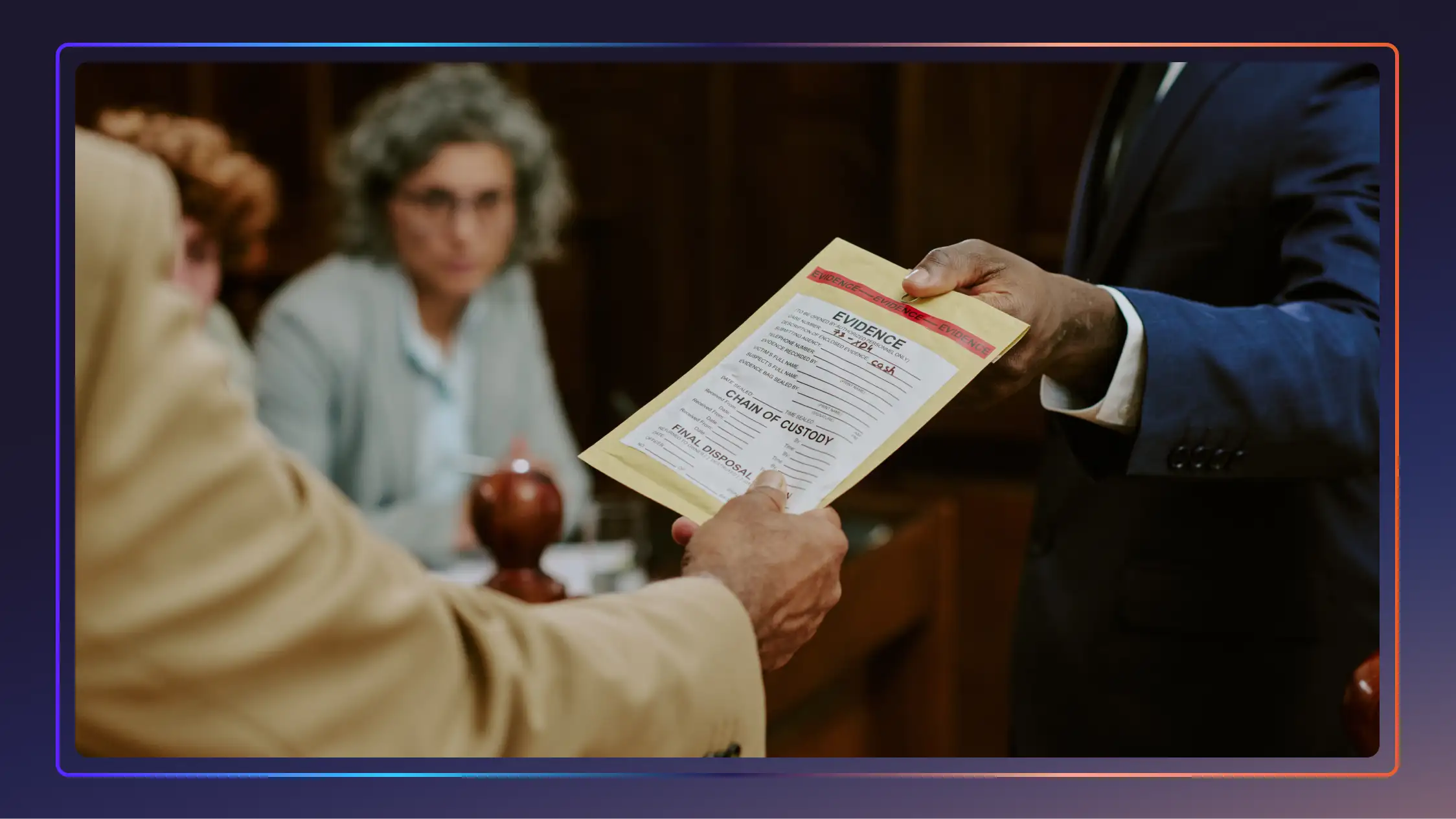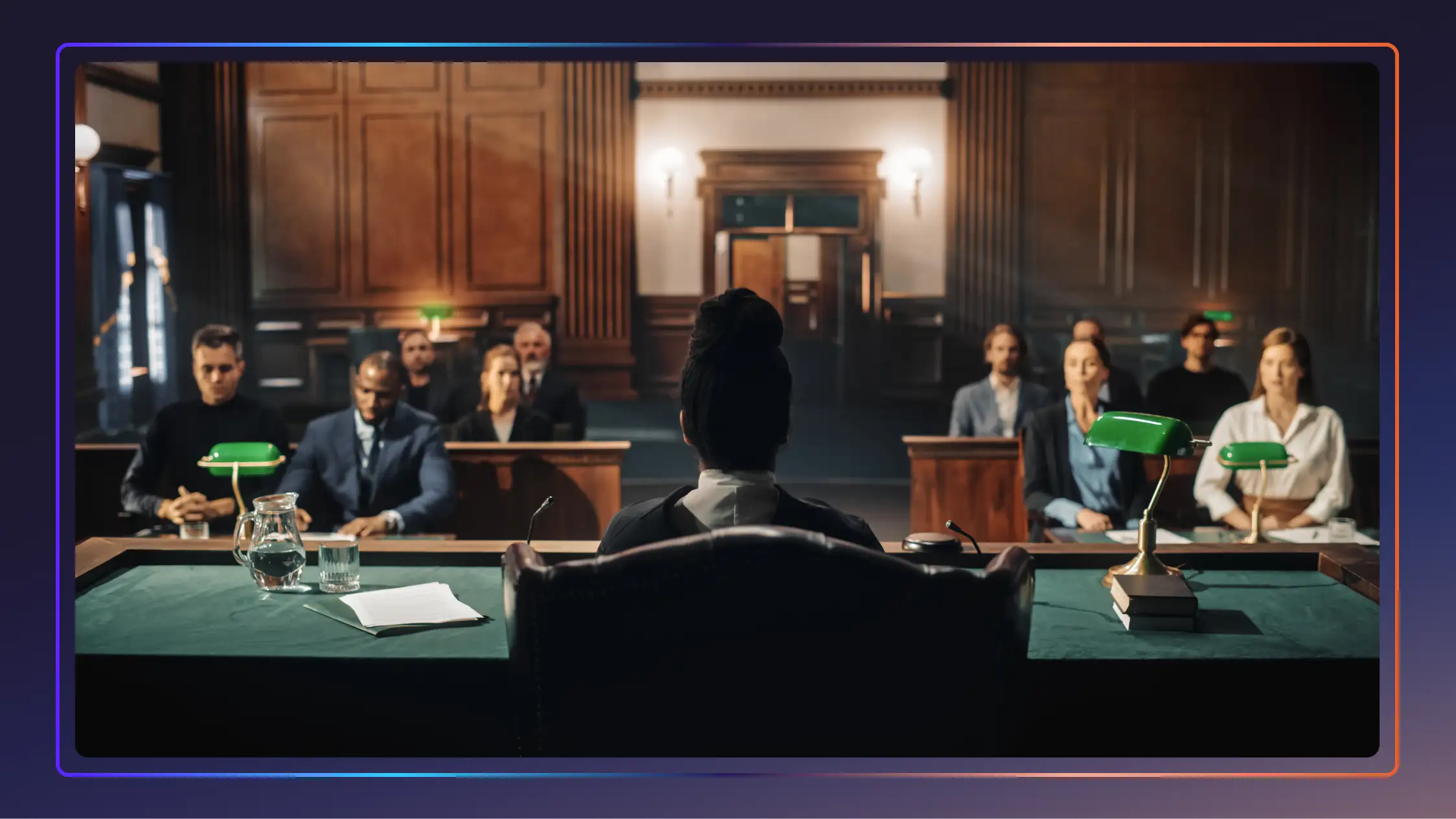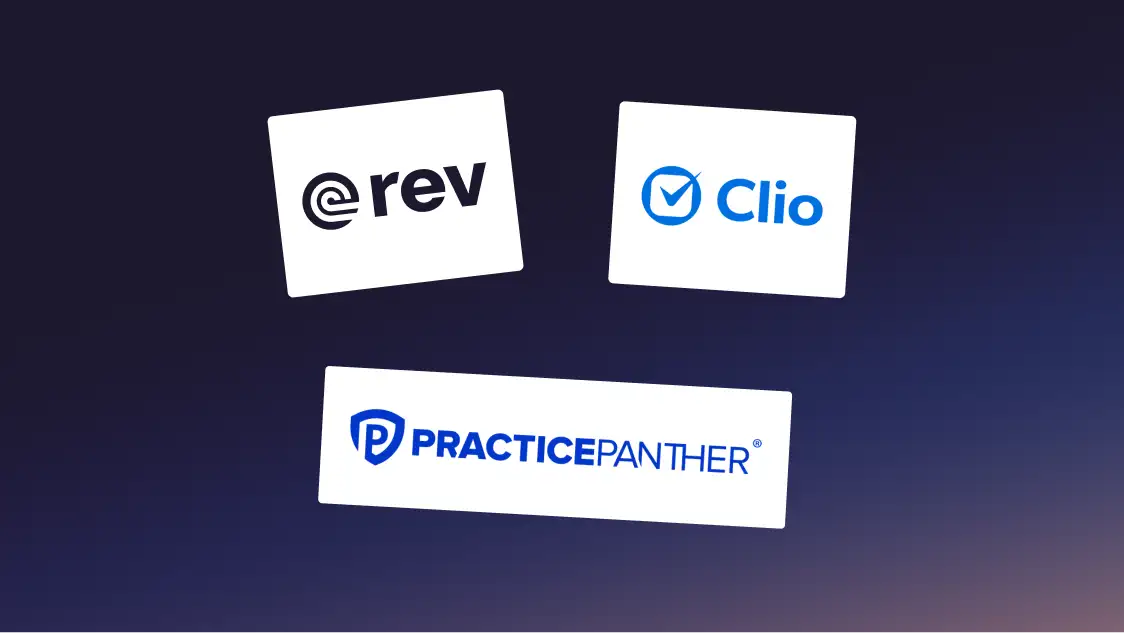Law Industry Trends for 2026+
Wondering what in the law industry is trending? We’ve compiled a list of the top law industry trends for 2026 and beyond, to help you empower your workplace and work smarter.

No matter the vertical, the passage of time has seen technological innovation in nearly every aspect of life. You can tap your phone to pay for your groceries, charge your car, and put on goggles that transport you into a video game. More and more, industries are looking for new ways that technology can move their industry forward.
For those working with the law, there are many legal technology trends shaping the path forward. In 2026, we expect technology and AI tools to start helping with research, reporting, and efficiency while reducing stress and burnout.
Let’s look at some law firm industry trends for 2026 and beyond.
1. AI Continues Its Reign
At this point, seeing “AI” and “Trends” in the same sentence shouldn’t come as a surprise. Artificial intelligence is seeping into almost every aspect of business, technology, and lifestyle, and it doesn’t seem to be stopping soon.
In the coming year, one of the biggest legal technology trends we anticipate is even more uses for AI in the legal industry. In fact, the National Legal Research Group even found that AI can research databases in seconds, allowing legal researchers to do their work up to 24.5% faster.
AI in the legal field can expedite research, help judge behaviors, predict courtroom outcomes, and help outline legal documents. (Note: While AI is extremely helpful for legal purposes, you should avoid using it to write a legal document, and you should always double-check anything that AI creates).
2. Bigger Focus on Efficiency
An efficient work process can make the difference between winning and losing a case, getting a contract submitted on time or missing your deadline, or closing a deal versus losing out to a competitor. You don’t want to be sifting through your notes and textbooks looking for the right answer when your deadline hits. And luckily, there are many legal tools available to help you cross the finish line with time to spare.
Our favorite efficiency tool for lawyers is our new platform. We use artificial intelligence to transcribe your meetings or video calls, analyze them, and give you the most important soundbites. That way you can remember and index the most important parts of your calls, interviews, and more without having to listen and re-listen.
Other efficiency tools for lawyers like Clio or Evernote can help with things like call screening, scheduling, time management, and copy editing.
3. Cybersecurity Becomes King
With so much information living online, it makes sense that your clients might be wary about their personal details. And for your firm, a cybersecurity leak could be potentially disastrous. That’s why one of the biggest law firm industry trends revolves around cybersecurity and how to keep your private information private (and yes, this is also one of Rev’s top priorities!)
Going into 2026, we expect to see law firms making an even bigger commitment to cybersecurity. This can include hiding documents behind encrypted walls, only granting access to essential personnel, and more.
4. Freelancing On the Rise
When you think of a freelancer, a lawyer might not be the first thing that pops into your head. However, lawyers are increasingly seeking out freelance opportunities over a traditional employment structure. This way, they can take cases that appeal to them and have more time and flexibility (aka remote work) than they would if they were working for a firm.
From the firm’s side, you can hire freelancers to complete legal tasks, aid in your research, help with cases or clients, and fill out your legal team. To adapt to this legal trend, legal professionals should invest in freelance-focused technologies like invoicing software, scheduling assistants, and AI tools for meetings.
5. DEI Remains Prominent
DEI (or Diversity, Equity, and Inclusion) has catapulted to the forefront of business management in the past few years. Essentially, DEI initiatives aim to build a workforce composed of people of different races, genders, ages, religions, backgrounds, and other identity characteristics.
For law firms, a focus on DEI can potentially build trust with your client base, as different types of people will feel represented by your workforce. There have also been numerous studies done about the positives of focusing on diversity, such as increased perspectives, team camaraderie, and more.
Going into 2026, we expect DEI to continue to be on the rise, with law firms looking for new ways to bring diversity into their workplaces.
6. Virtual Reality Enters the Courtroom
Imagine: Instead of simply describing a crime scene, you can walk the jury through it. That is how VR is expected to integrate into court proceedings. Using virtual reality, legal teams can build virtual versions of real-life places, helping the jury to better understand the evidence and make an informed decision.
VR can also be used to help witnesses (especially those who have witnessed or been a victim of a crime) prepare to give testimony in court. The VR can help create a realistic courtroom scenario and allow them to practice giving their testimony in a safe environment.
7. Digital Reporting Goes Mainstream
A court stenographer plays a very important role in the court ecosystem. They keep meticulous notes of what is said during court proceedings, which then act as a guide for referencing what was said and what happened during a trial.
To take a bit of the pressure off a stenographer and their stenotype, some courtrooms are starting to allow digital reporters in. Digital reporters use audio equipment to capture court proceedings, and then transcribe them using a transcription service (like Rev!).
Having an automated backup for court proceedings can help everyone be more confident that court proceedings were captured accurately. Not to mention, it saves teams a lot of time!
The Future of the Industry
The common denominator among most law industry trends? Technological innovation. From services like Rev helping with transcription, to AI helping conduct research, and digital recording helping to capture court proceedings, legal technology is revolutionizing the way house legal teams do their work.
With tech innovation, however, comes great responsibility. There is always the risk of cyberattacks, glitches, or inaccuracies in technology-generated work. Therefore, it’s a best practice when working with any sort of technology to do the proper training required for your software and to always double-check your work. It’s also recommended to read up on the laws regarding things like AI to make sure you stay compliant.
The Verdict? Technology is On the Rise
Here at Rev, we want those working in the legal field to be empowered to have what they need, when they need it. And we’ll even help you get it quicker, too. Rev can help you make your work more efficient by providing lightning-fast transcriptions that include the most notable insights to boot.
Learn more about Rev for law firms.














.webp)

